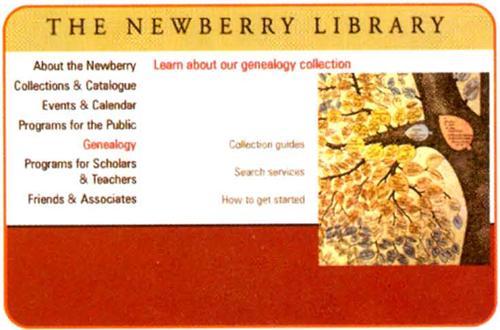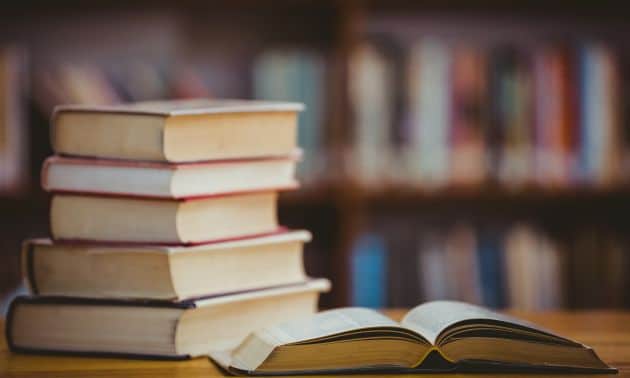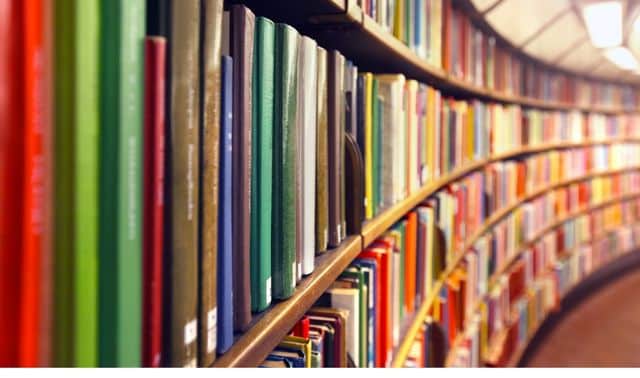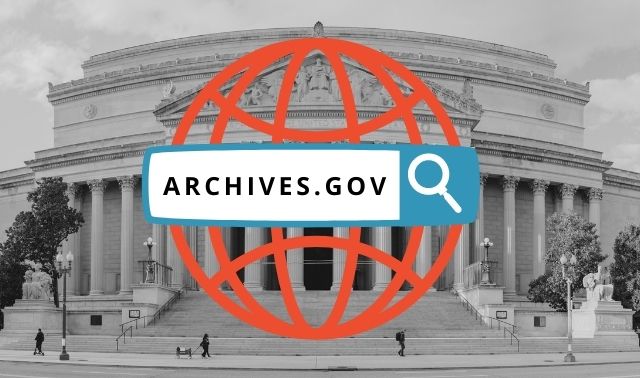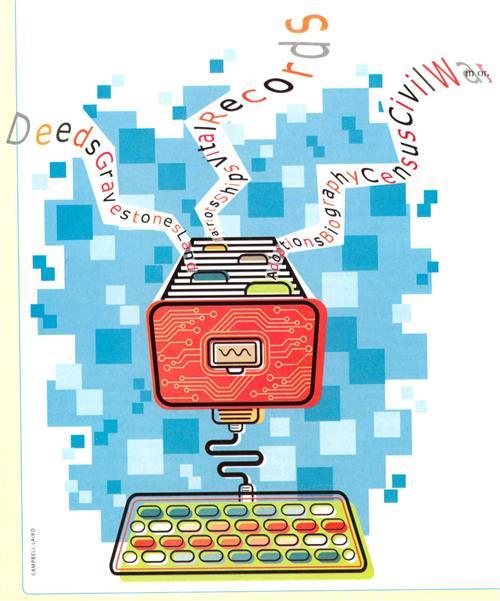
Once you’ve combed the Web for your family history with Yahoo!, AltaVista, Excite or another search site, you might think you’ve found all there is to find. But you’d be missing some of the most useful family history resources on the Internet: the online catalogs of your old offline friend, the library.
Web researchers might mistakenly assume trial Internet search engines index items listed in online library catalogs. In fact, you must search each online catalog directly to identify specific items held by the library that might hold answers to your genealogical mysteries.
Just like the old card catalogs in wooden file drawers, library catalogs on the Internet help you find books and other materials in a library. Now that many libraries have placed their catalogs online, you can easily find out what family history resources are available in libraries across the US and even in other countries.
And those resources are immense. A copy of just about every genealogy and local history ever published can be found in a library or archive somewhere. Published genealogies typically relate the story of an immigrant family and trace many of their descendants for several generations. Town, county and church histories often include biographical sketches with portraits and details on occupations, religious affiliations, places of residence, accomplishments and personality traits — information you won’t find anywhere else. State archives and historical societies hold county records, gravestone transcriptions, family Bible records and personal manuscript collections that may provide the essential clue you need to extend your family tree back another generation. All of these materials are listed in library catalogs that you can easily search on the Internet.
Library catalogs are now much simpler to use than they used to be. Most online library catalogs are accessible with a Web browser such as Microsoft Internet Explorer or Netscape Navigator, but a few require special “telnet” software. Windows 95, 98 and NT come with a telnet program called HyperTerminal, but other telnet programs are available for purchase or as free downloads. Macintosh users can download free programs such as Telnet 3.0 from shareware sites such as Download.com <www.down-load.com>.
Entries in online library catalogs typically include basic bibliographic information, as well as a call number that identifies the book’s location on the library’s shelves. Here’s the Connecticut State Library’s catalog entry for a genealogy that has extensive information on my family:
Author: Amos, M. Frederick (Malcolm Frederick), 1926-. Keith, Gerald, 1909-1981. Perry, Myrtle K. (Myrtle Keith), 1915-.
Title: The descendants of Edmund and Jane (Webb) Price: one of the very early English-speaking couples to settle on the St. John River, compiled by M. Frederick Amos, Gerald Keith, Myrtle K. Perry
Publisher: [s.l: s.n.], 1976.
Description: vii, 268 p.; 27 cm.
Bibliography: Bibliography: p. 253.
Notes: Includes index.
Subject: Price family. Price, Edmund, d. ca. 1785 — Family. New York (State) — Genealogy. New Brunswick — Genealogy.
Call Number: CS71.P946 1976
The library has added subject terms to let you know that this book deals with the family of Edmund Price, who died in about 1785, and that the families discussed in the book lived in the state of New York and the Canadian province of New Brunswick. Sometimes libraries add notes describing the book’s contents in more detail.
Most library catalogs let you search for individual words (“keywords”) within the Title, Notes and Subject fields. If you already have a reference to a book and know the author or title, then you should search the Author or Title fields. If you’re just trying to find out what’s available, go ahead and search the Title, Notes and Subject fields for a surname, place name or other topic. Some catalogs let you search all three fields at once.
Here are three search strategies to get you started:
1. Search on a surname (last name) and the word “family” to find family histories.
For example, you might search on “Price family.” If it’s a common name, try adding a place name to narrow down the list of matches. By searching on “Price family and New Brunswick” you’ll find only references that include both “Price family” and “New Brunswick.” (This kind of search, using combining words such as “and,” “or” or “not,” is called a Boolean search.) Keep in mind that catalog entries usually list only the most prominent names discussed in a book. For example, while the above reference to the Price book cites only the surnames Price and Webb, the book’s index actually lists hundreds of surnames and thousands of individual names.
2. Search on the name of a town, city, county or state and the word “history” to find local histories.
For example, you might search on “Mercer County 111. history” to find histories of Mercer County, Illinois.
3. Search on a place name and a record type to find a specific kind of record for a certain locality.
For example, search on “Augusta Co. Va. deeds” or “Augusta County Virginia deeds” to find land records for Augusta County, Virginia. Try both spelling words out in full and using abbreviations. See the list of common words dealing with genealogy in the box on page 52. Try searching on both the singular and plural forms of a word.
Once you find a promising reference in an online library catalog, there are a number of ways to get the information you need from the book, microfilm or manuscript. If the Family History Library in Salt Lake City has the item on microfilm or microfiche, you can borrow it through your local Family History Center. The National Genealogical Society <www.ngsgenealogy.org> and the New England Historic Genealogical Society <www.nehgs.org> lend books to their members. Also, some books and microfilms useful to genealogists can be borrowed on interlibrary loan through your local public library. For example, the Mid-Continent Public Library in Independence, Mo., makes a collection of more than 5,000 genealogy and local history books available by interlibrary loan.
Most libraries will answer brief reference questions, such as a request to look up a name in an indexed book. Some libraries can do limited research or make photocopies for a fee. Go to the library’s Web site for a description of its policies and contact information. Depending on the library’s capabilities, you may be able to submit questions by mail, phone, fax or e-mail. If you require more extensive research, the library may be able to provide you with a list of professional researchers.
Below, you’ll find some of the most important online library catalogs for family history researchers. Keep in mind that some of these catalogs don’t yet list everything in the library’s collections. See our Web site <www.familytreemagzine.com/articles/libraylinks.html> for more links to library catalogs of state libraries and historical societies, national libraries and libraries with important ethnic collections, as well as directories of library Web sites and online catalogs.
adoptions
African-American
Afro-American
apprentices
atlas
baptisms
bible
biography
births
Blacks
burials
cemeteries
census
church
Civil War
coat of arms
colonial
Confederacy
Confederate
court
deaths
deeds
directories
divorces
emigrants
emigration
genealogy
gravestones
guardianship
heraldry
history
homestead
immigrants
immigration
land
land grants
Loyalists
maps
marriages
Mayflower
military
militia
missionaries
naturalization
newspapers
nobility
obituaries
passenger lists
patriots
pensions
Pilgrims
probate
Puritans
Revolutionary War
royalty
school
ships
slavery
soldiers
tax
tombstones
Union
vital records
wills
Like all Web addresses in Family Tree Magazine, the exact address appears within < > brackets. Not all Web addresses begin with “www.” — so type exactly what’s within the brackets. Or skip the typing and just click on these links at <www.familytreemagazine.com>.
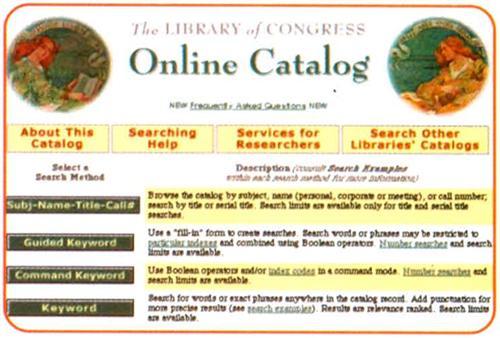
• Birmingham Public Library, Birmingham, Ala. <www.bham.lib.al.us/>: The library’s genealogy and local history collections are strongest for Alabama, but include major holdings for Georgia, Mississippi, Tennessee, North and South Carolina, Virginia, Louisiana and other Southern states.
• Brigham Young University, Provo, Utah <www.lib.byu.edu/menu.html>: The Genealogy and Microforms Department of BYU’s Harold B. Lee Library was the first, and remains the largest, of the 3,400 Family History Centers around the world <www.lib.byu.edu/~uvrfhc>. In addition to an extensive collection of printed resources, the library holds 650,000 rolls of microfilm and 2 million microfiches.
• California State Library-Sutro, San Francisco <www.library.ca.gov/>: The Sutro Library has one of the largest genealogical collections west of Salt Lake City. Its collections include more than 7,000 family histories, 35,000 local histories and vital records titles, and all US census microfilms from 1790 to 1920. You can find more on the library and links to search the entire California state library system at <206.147.53/CENCOLL/sutro.htm>.
• Dallas Public Library <lib.ci.dallas.tx.us/marion>: The library’s genealogy collection consists of 78,000 books, 40,000 rolls of microfilm and 74,700 microfiches. Among the titles are genealogies and all types of genealogical source material. The collection covers the entire US and also includes genealogical resources for Canada, the British Isles, Germany and other countries.
• Daughters of the American Revolution (DAR), Washington, DC <dar.library.net>: The DAR Library holds more than 150,000 books. Thousands of volumes of genealogical compilations, such as gravestone transcriptions and Bible records, are available nowhere else. The collection focuses on the period of the American Revolution, but also includes substantial materials covering the colonial era and the 19th century. Some 53,000 items of microfilm and microfiche supplement the book collection.
• Denver Public Library <www.denver.lib.co.us/>: The library’s Genealogy Collection consists of about 60,000 volumes and 75,000 microforms. The collection focuses on US materials, but includes significant resources for Southern, African-American, Native-American and Southwestern Hispanic research. The Western History Collection is made up of 100,000 volumes, 135,000 microforms and a large manuscript collection.
• Detroit Public Library <www.detroit.lib.mi.us/>: The library’s Burton Historical Collection contains genealogical materials covering the entire US. It also features many Canadian sources and early French records.
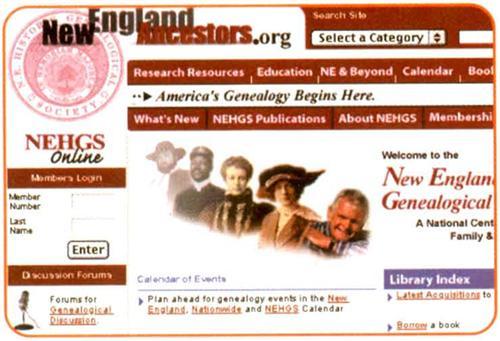
• Houston Public Library-Clayton Library <sparc.hpl.lib.tx.us/clayton/>: The Clayton Library’s Center for Genealogical Research has many family histories and county histories, as well as city directories for major US cities through 1860 and all US federal census records through 1910. The collection also includes abstracts and indexes of wills, deeds, vital records and church and cemetery records.
• Library of Congress, Washington, DC <lcweb.loc.gov/catalog/>: The Library of Congress has more than 40,000 genealogies and 100,000 local histories. In addition to published material, the library has rich collections of manuscripts, microfilms, newspapers, photographs and maps. International in scope, the collections include extensive material for North America, the British Isles and Germany, and significant holdings for other areas. The Library’s royalty, nobility and heraldry collection is unsurpassed in North America.
• Los Angeles Public Library <catalog.Iapl.org/>: The Library’s History and Genealogy Department has more than 40,000 volumes, including more than 10,000 genealogies. Check the Barrett Genealogy Index <dbasei.lapl.org/pages/barrett.htm>, an index to family names in these genealogies. The History and Genealogy Department is described at <www.lapl.org/central/history.html>. The Central Library’s Map Collection, one of the largest in American public libraries, houses 80,000 maps, 2,000 atlases and 1,000 gazetteers.
• Mid-Continent Public Library, Independence, Mo. <opac.mcpl.lib.mo.us/>: The library’s collection of 40,000 titles encompasses genealogies, local and state histories and indexes and abstracts of county records. The focus is on Missouri, states bordering Missouri and states east of Missouri. The library makes more than 5,000 genealogy and local history books available by interlibrary loan.
• National Genealogical Society, Arlington, Va. <www.ngsgenealogy.org>: The library’s 30,000 family history and local history books are complemented by a large manuscript collection, members’ ancestral charts, Bible-records and family history files. Members not only receive the society’s acclaimed scholarly journal and informative newsletter, but also access to the library’s book-lending service available throughout the continental US. Both members and non-members may use the NGSearch service to submit a specific research question to the library staff.
• National Union Catalog of Manuscript Collections (NUCMC) <lcweb.loc.gov/coll/nucmc/>: This catalog lists nearly 500,000 manuscripts held in research libraries, museums, state archives and historical societies located throughout North America.
• New England Historic Genealogical Society, Boston <www.nehgs.org>: Founded in 1 845, NEHGS is the oldest genealogical society in the US and publishes the highly regarded New England Historical and Genealogical Register. In addition to extensive resources for New England genealogy, the society’s collections include many materials from other regions of the US, Canada, England, Ireland and Continental Europe. Members may borrow books from the Circulating Library, which holds more than 25,000 volumes, including many of the most popular of the nearly 200,000 volumes, journals, microfilms and CD-ROMs in the Research Library.
The first phase of the society’s extensive new Web site, recently launched at <www.NewEnglandAncestors.org>, features a catalog listing not only the holdings of both the Research Library and the Circulating Library, but also books available through the NEHGS Bookstore. About half of the combined holdings of the two libraries are listed online and more will appear as cataloging progresses. Members can even place book loan orders and request photocopies directly on the site.
• New York Public Library <catnyp.nypl.org/>: The library’s US History, Local History & Genealogy Division has one of the largest genealogical collections in the country. The family history collection is international in scope and includes many foreign-language materials. More than 25,000 local and state histories cover the entire US. Many of the library’s manuscript and typescript volumes are the only copies in existence anywhere.
• Newberry Library, Chicago <www.newberry.org>: A private institution, but open to the public, the Newberry Library has an impressive collection of more than 17,000 genealogies. Noteworthy among them are histories of colonial New Lngland families and rare titles on British noble families. The library’s local history collection includes town, county and church histories from all over the US, as well as Canada and the British Isles.
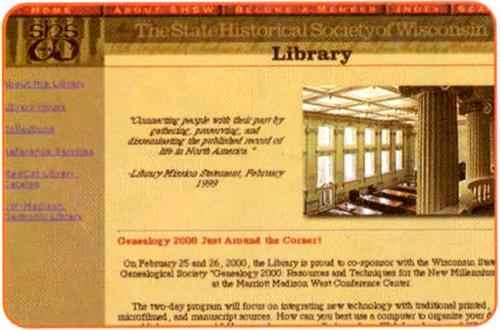
• State Historical Society of Wisconsin <www.shsw.wisc.edu/library/>: The library’s extensive holdings include published genealogies and local histories for all parts of the US and Canada. The newspaper collection is the second-largest in the US, dating from the 17th century to the present.
• Western Reserve Historical Society, Cleveland <www.wrhs.org/searchme.htm>: One of the first institutions in America to collect genealogical materials, the Western Reserve Historical Society holds more than 18,000 family histories. The library focuses on source materials for states east of the Mississippi River, but also has major sources for other states. In addition to histories of all Ohio counties, the collection includes many town and county histories for the original 13 states, the Midwest and the upper South.

